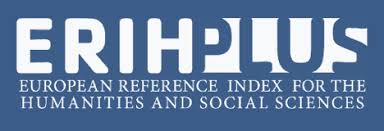№1, 2021
The article examines the problems of the formation of sectors of ICT-based economy and the aspects of their impact on socio-economic processes. Along with traditional sectors of the Azerbaijani economy, directions for the development of new sectors are indicated. Sectors of ICT-based technological innovation economy are identified, the features of their formation, and problems are studied. Problems and perspective tasks of application of ICT in their formation are defined. The current situation in Azerbaijan is analyzed by some global ICT, innovation and economic indices. The indicators characterizing the innovative development in the formation of technological innovation economy are proposed. The economic features and problems of mobile systems and technologies are explained, and international experience is studied. The current state and development prospects of the Internet economy are analyzed. Specific features of the economy of space, big data, cloud, Internet of Things, cyber-physical systems and artificial intelligence technologies are studied. The impact of new economic sectors on socio-economic processes is studied. Taking into account the requirements of the transition to the 4th Industrial Revolution, certain recommendations are provided for the development of ICT-based technological innovation economy sectors. The article considers the development of relevant recommendations in connection with the formation of new sectors of the economy of ICT-based technological innovation economy and the definition of aspects of their impact on socio-economic processes. Information theory and a systematic approach are used to identify the problems in the formation and development of technological innovation economy sectors. Statistical analysis, requirements of econometric modeling methods, modern ICT technologies, and the main trends of the 4th Industrial Revolution are taken into account. These recommendations can make a significant contribution to the organization of the efficient operation of sectors of the technological innovation economy. Taking into account the directions of formation of ICT-based technological innovation economy sectors can create additional opportunities to increase efficiency in the new economic management (pp.94-110).
- Milli iqtisadiyyat və iqtisadiyyatın əsas sektorları üzrə Strateji Yol Xəritələri. Bakı, 6 dekabr 2016-cı il, https://president.az/articles/21953.
- Telekommunikasiya və informasiya texnologiyalarının inkişafına dair Strateji Yol Xəritəsi. Bakı, 6 dekabr 2016-cı il, https://president.az/articles/22382.
- “Elm haqqında” Azərbaycan Respublikasının Qanunu. Bakı, 14 iyun 2016, http://science.gov.az/uploads/PDF/Elm_haqqinda_Azerb_Respublikasinin_Qanunu.pdf.
- Schwab K. The Fourth Industrial Revolution, Limited, 2017, 192 p.
- Əliyev Ə.Q. İnformasiya iqtisadiyyatı sektorlarının formalaşmasının elmi-nəzəri və metodoloji əsaslarının tədqiqi // İnformasiya cəmiyyəti problemləri, 2018, №2, s.84-96.
- Digital Economy Report-2019, 194 p.
- Мирошниченко М.А., Зотова Т.С., Леготин И.А. Знания в рамках цифровой экономики как фактор развития информационного сектора // Вестник Академии знаний, 2019, № 35(6), с.193-199.
- Maslennikov M.I. The technological innovations and their impact on the economy // Economy of Region, 2017, volume 13, issue 4, pp.1221-1235.
- Mellor R.B. Big data modelling the knowledge economy // Int. J. Knowledge-Based Development, 2018, vol. 9, No.3, pp.206-220.
- Егорова М.С. Технологические инновации, как основа изменения технологической структуры экономики // Управление экономическими системами: электронный научный журнал, 2013,№10 (58), с.35.
- Чарочкина Е.Ю., Андросова И.В., Согачева О.В. Факторы формирования Интернет - экономики в России: возможности и опыт развитых стран // Экономика и управление: проблемы, решения, 2018, Т.7, №12, с.58-63.
- Померанцева П., Ященко С.Д. Технология больших данных как основа формирования цифровой экономики // Интеллектуальные ресурсы-региональному развитию, 2020,№2, с.365-371.
- The World Bank in Azerbaijan, https://www.worldbank.org
- “Azərbaycan Respublikasında İnformasiya Cəmiyyətinin inkişafına dair 2014-2020-ci illər üçün Milli Strategiya. Bakı, 2 aprel 2014-cü il, http://www.president.az.
- Əliyev Ə.Q. Bəzi regional və müasir innovativ fəaliyyət sektorlarının İKT bazasında inkişaf etdirilməsi problemləri və istiqamətləri // AMEA-nın Xəbərləri. İqtisadiyyat seriyası, 2020, №2, s.31-45.
- Niebel T. ICT and economic growth – Comparing developing, emerging and developed countries // World Development, 2018, pp.197-211.
- ITU, Measuring the Information Society Report-2018, volume 2, 244 p. Statistical reports, ITU Publications, https://www.itu.int.
- ICT sector analysis 2019, https://www.ec.europa.eu/jrc/en/predict/ict-sector-analysis-2019.
- AR Dövlət Statistika Komitəsi, Azərbaycanın Milli Hesabları. Statistik Məcmuə. Bakı, 2019, 140 s.
- Əliyev Ə.Q. İKT sektorunun müasir vəziyyətinin və perspektiv inkişaf potensialının qiymətləndirilməsi məsələləri // İnformasiya cəmiyyəti problemləri, 2020, №2, s. 51-64.
- AR Dövlət Statistika Komitəsi. Azərbaycanda Informasiya Cəmiyyəti. Statistik Məcmuə. Bakı, 2020. 122 s.
- World Economic Forum. The Global Competitiveness Report-2019. Editor Professor Klaus Schwab Geneva, Switzerland, 666 p.
- Global Innovation Index-2020. Editors: Soumitra Dutta, Bruno Lanvin, and Sacha Wunsch-Vincent. 448 p.
- The Network Readiness Index-2019. Editors: Soumitra Dutta and Bruno Lanvin. 318
- Measuring the Information Society Report-2018, volume 1, 204 p.
- World Bank. Doing Business-2020. International Bank for Reconstruction and Development,149 p.
- Zoltán J. Ács László Szerb Esteban Lafuente Gábor Márkus. The Global Entrepreneurship Index-2019. 71 p.
- Danylenko Yu. A. Characteristics and classification of innovation and innovation process // Science and Innovation, 2018, volume 14, issue 3, pp.14-26.
- Махмудов Р.Ш.О научно-теоретических основах Интернет-экономики // Общество и экономика, 2020,№5, с.9-18.
- Əliyev Ə.Q. Internet iqtisadiyyatının müasir vəziyyətinin təhlili və inkişaf perspektivləri // İnformasiya cəmiyyəti problemləri, 2013, №2(8), s. 21-30.
- Əliquliyev R.M., Mahmudov R.Ş. İnternet cəmiyyətin inkişafının hərəkətverici qüvvəsi kimi // İnformasiya cəmiyyəti problemləri, 2016, №1, s.35-45.
- GSM Association. The Mobile Economy 2020, 62 p.
- Магомедов Р.М. 5G технологии: прорыв в цифровой экономике // Самоуправление, 2020, Т.2, №1(118), с. 250-253.
- Məmmədova M.H., Cəbrayılova Z.Q. Tibbi Əşyaların İnterneti və onun dəniz neft platformasında işçilərin fiziki təhlükəsizliyinin izlənməsində imkanları // İnformasiya cəmiyyəti problemləri, 2019, №1, s.51–62.
- Чернов А.В., Чернова В.А. Интернет вещей как глобальная инфраструктура для новой экономики // Современная наука: актуальные проблемы теории и практики. Серия: Экономика и право, 2018, №12, с.73-76.
- Nilsson N.Ch., Serafin S., Steinicke F. Natural walking in virtual reality: A review // Computers in Entertainment, 2018, vol.16, no.2, p. 22–31.





.jpg)









